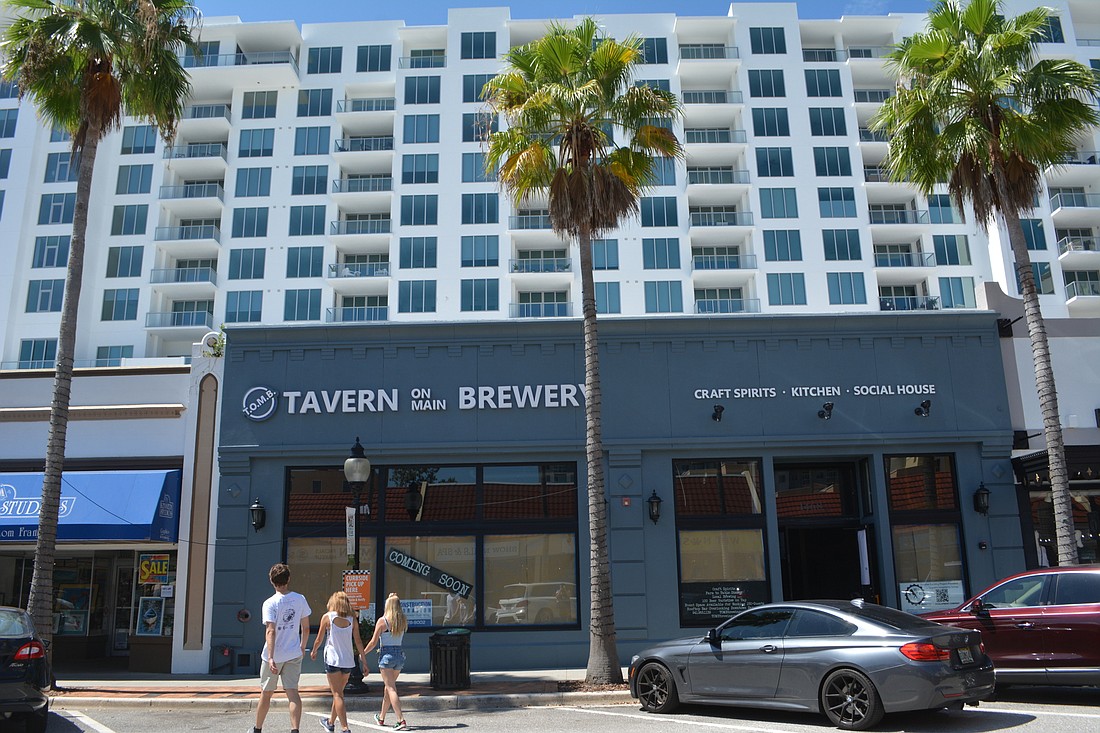- May 3, 2025
-
-
Loading

Loading

Updating and streamlining the city’s sound ordinance has been on Robert Fournier’s to-do list for years, but it’s going to be at least a little while longer before that task is done.
Fournier, the city attorney, was scheduled to present a series of proposed changes to the noise regulations at the April 5 City Commission meeting, but he pulled the item from the agenda to make further revisions. Fournier said the draft ordinance included with the meeting agenda drew concern from some residents, and the city attorney wanted to make clear the document was subject to change pending policy direction from the commission.
Fournier said the impetus for updating the sound ordinance was simple: He wanted to make the regulations easier to understand and enforce, both for police officers asked to apply the rules and for residents who raise concerns about noise near their homes.
The process of actually updating the sound ordinance has been anything but simple, though. Since at least 2013, the commission has had lengthy conversations about adjusting its standards for noise violations, particularly in the downtown core. In 2020, the city increased the fines associated with a first- and second-time violation of the sound ordinance, but the commission has declined to adopt more significant revisions.
Conversations at commission meetings since 2013 have been divisive, breaking down across familiar lines. Residents have complained that late-night business activity and amplified music disrupts their quality of life. Businesses have said some level of noise is part of the fabric of a vibrant community and that most resident complaints don’t lead to officers finding a sound ordinance violation. Commissioners have failed to reach a consensus on the proper balance to strike.
Last summer, however, the board indicated its interest in pursuing revisions, directing Fournier to prepare a proposal for a future meeting.
Fournier said in his memo that his goal is not to create more stringent or more lenient regulations for businesses that offer live music or other entertainment.
“The primary purpose is simply to provide more clarity as to what the rules are,” Fournier wrote.
Although Fournier’s changes attempt to be policy-agnostic, he said the commission could still choose to pursue adjustments to the rules if they desired. Fournier intends to introduce the draft ordinance for an introductory round of discussion at a commission meeting before finalizing a proposal for a formal public hearing at a future date.
Fournier’s draft ordinance attempted to achieve clarity by creating three different categories of potential noise violation. One metric used to evaluate sound is a decibel limit, the primary factor for managing noise in the city today.
The ordinance establishes 11 p.m. on weekdays and midnight on weekends and holidays as the time at which nightly decibel limits take effect. Fournier said the city has applied its rules this way since 2013, but the ordinance lists three times at which decibel limits are supposed to be lowered. Fournier said the specific time for implementing stricter decibel limits is subject to change depending on commissioner input.
Fournier proposed supplementing the decibel limits with a restriction on “plainly audible” sound that falls outside the scope of everyday noise. Between 12:01 a.m. and 7 a.m., the ordinance would allow for citations if noise is audible at a distance of 100 feet and is interfering with “the peace and comfort of a reasonable person.” The proposal also includes restrictions on “excessive noise caused by specific activities,” such as construction between 9 p.m. and 6 a.m. on weeknights.
The proposal also includes a series of revisions to zoning code regulations related to sound. The proposal would remove prohibitions on outdoor amplified music in accessory restaurants and accessory hotel space, which Fournier said is not legally enforceable under state law. Fournier asks to eliminate the zoning code definition of a nightclub, which applies to all businesses using a liquor license without a food sales requirement. Fournier recommends the city adopt clearer standards regarding bar and restaurant operations, which he said planning staff is currently working on.
Fournier said he intended to bring the ordinance back to the commission for consideration in six to eight weeks.